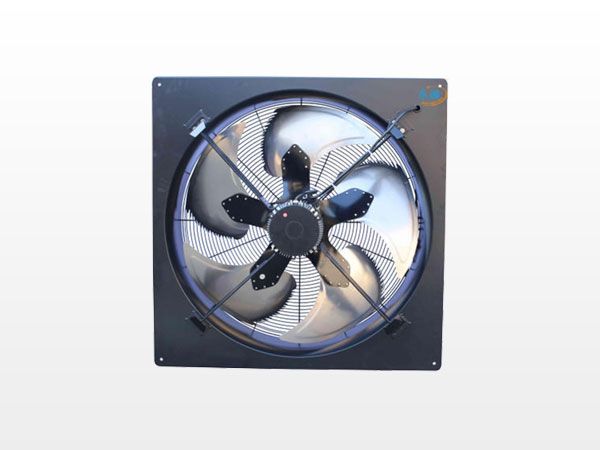How industrial axial fans can help mitigate the effects of climate change
 Mar 27, 2023|
Mar 27, 2023| View:936
View:936Industrial axial fans have become an important part of the response to climate change. As temperatures rise at an alarming rate and natural disasters become more frequent and severe, ways must be found to mitigate the environmental impact of human activity. In recent years, industrial axial fans have emerged as a promising tool for reducing carbon emissions and improving energy efficiency in a variety of sectors, from manufacturing to transportation to agriculture. This article explores how industrial axial fans can help mitigate the effects of climate change and highlights some of the latest technological advances in the field.

1. One of the main ways industrial axial fans can help mitigate climate change is by improving ventilation and indoor air quality in industrial environments.
Industrial processes often produce harmful pollutants and fumes, which can have a negative impact on workers' health and the environment. By using industrial axial fans to circulate and filter air more efficiently, these pollutants can be removed and air quality improved. This not only creates a safer and healthier work environment, but also reduces the release of harmful chemicals into the atmosphere.
2. Another way industrial axial fans help mitigate climate change is through their ability to improve energy efficiency across industries.
Designed to move large volumes of air at high speeds, industrial axial fans can be used to reduce energy consumption in industries that require significant ventilation or cooling. For example, in HVAC systems, industrial axial fans can be used to distribute air more efficiently, thereby reducing the need for additional cooling and heating equipment. In data centers, industrial axial fans can be used to reduce energy consumption by improving air flow and cooling servers more efficiently.
3. Transportation is another area where industrial axial fans can play an important role in reducing carbon emissions.
By improving the aerodynamics of transportation vehicles, industrial axial fans can help reduce drag and improve fuel efficiency. This is becoming increasingly important because transportation is one of the largest contributors to global carbon emissions. By reducing the amount of energy needed to move vehicles through the air, industrial axial fans can help make transportation more sustainable and less harmful to the environment.
4. Agriculture is another area where industrial axial fans can be used to mitigate the effects of climate change.
In modern agriculture, large greenhouse structures are used to grow crops year-round. However, these structures often require significant ventilation and cooling to maintain optimal growing conditions, which can consume large amounts of energy and lead to high carbon emissions. Industrial axial fans can help reduce this impact by improving air circulation and providing an efficient means of ventilation and cooling. In addition, industrial axial fans can be used for the storage and processing of agricultural products, improving efficiency and quality.
In recent years, technological advances have also improved the performance and application of industrial axial fans. For example, developments in high-efficiency motors and intelligent controls have improved the energy efficiency and performance of industrial axial fans. Advances in materials science have also given rise to more durable and corrosion-resistant fans, making them a reliable tool for harsh environments.
In short, industrial axial fans have the potential to play an important role in mitigating the effects of climate change across all sectors. From improving air quality and ventilation in industrial environments to reducing energy consumption in transportation and agriculture, the use of industrial axial fans is widespread and critical to achieving sustainable development. Through continuous improvement and innovation in this area, we can both reduce carbon emissions and create a more sustainable future. If you need more detailed information, please feel free to contact us!







